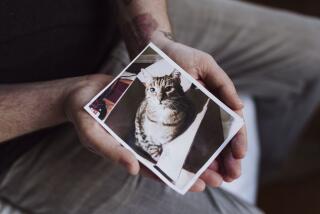What Risks Does AIDS Pose to Funeral Home? : Director’s Policy Only Spreads Ignorance of the Disease
- Share via
The Mumaw Funeral home in Lancaster refuses to accept the bodies of people who have died of AIDS-related illnesses. Its director, Jim Mumaw, puts its this way: “I do not wish to become one of the small percentage of persons in my profession who will die from an accidental infection of the HIV virus.” HIV is the human immunodeficiency virus, which has been identified as a primary cause of AIDS or the acquired immune deficiency syndrome.
Mumaw also reasoned that he was in a unique position “as a single parent of two small children.”
State regulators are looking into a complaint against the funeral home and say that there are no specific statutes to guide funeral parlors in how to handle AIDS-infected bodies. They are also reviewing whether civil rights or other general statutes may apply. That is not our focus here. Another question arises: What are the dangers here? They appear to be negligible.
Since 1981, when the federal Centers for Disease Control and Prevention began tracking AIDS fatalities, about 204,400 adults and children have died from the disease.
That represents quite a few contacts between deceased AIDS victims and morticians, funeral parlor workers, and the like. To date, there are no documented cases of such employees contracting HIV from their work.
According to the CDC, there are only three possible cases in which an embalmer may have acquired the virus through his work. They are considered possible cases, the CDC says, because the three individuals have not indicated any other potential mode of transmission such as intravenous drug use, blood transfusions, or unprotected sexual contact with someone with the virus. Authorities do not know when these people contracted the virus, or how, or from whom. Even if all three were determined to have definitely contracted the virus in connection with their work, and that is a stretch, they represent a probability of one chance in 68,133.
To Phil Wilson, director of public policy for AIDS Project Los Angeles, Mumaw’s fears are “absurd. One gets exposed from infected blood that enter’s one’s bloodstream. You contract the virus by being sexually active with an infected person in a way in which their bodily fluids enter yours, or from sharing a needle used in intravenous drug use. I would hope that neither would be very possible in an embalming situation. This is just silly bigotry.”
A similar view came from Dr. Michael Gottlieb, the Sherman Oaks physician who is credited with the identification of AIDS as a new disease. About 95% of Gottlieb’s patients are infected with HIV.
“If he did sustain a sharp needle injury from something used to embalm, there might be a risk, but this type of risk has been managed very effectively for 14 years,” Gottlieb said. “He (Mumaw) must be aware of this. There has been much progress and understanding about this disease and the way it is contracted and the ways in which you can protect yourself. Where has this guy been?”
In fact, the CDC has published very specific AIDS guidelines for health care and public safety workers. These are the “universal blood and body-fluid precautions.” Those that apply here are easily stated, such as the use of protective masks, eye wear or face shields, lab coats, gloves and waterproof aprons. Obtaining those guidelines is as simple as calling the CDC’s Office of Public Affairs at 404-639-3286.
Every day in this nation, doctors and nurses and assistants, lab technicians, and scientists and researchers deal intimately with this disease in an effort to find a cure, to prolong life, and to make life a little easier for its victims. The Mumaw Funeral Home’s fears do not contribute to progress on that front. They only contribute to ignorance.
More to Read
Sign up for Essential California
The most important California stories and recommendations in your inbox every morning.
You may occasionally receive promotional content from the Los Angeles Times.













